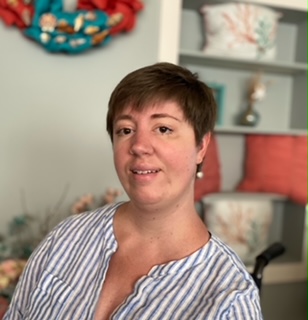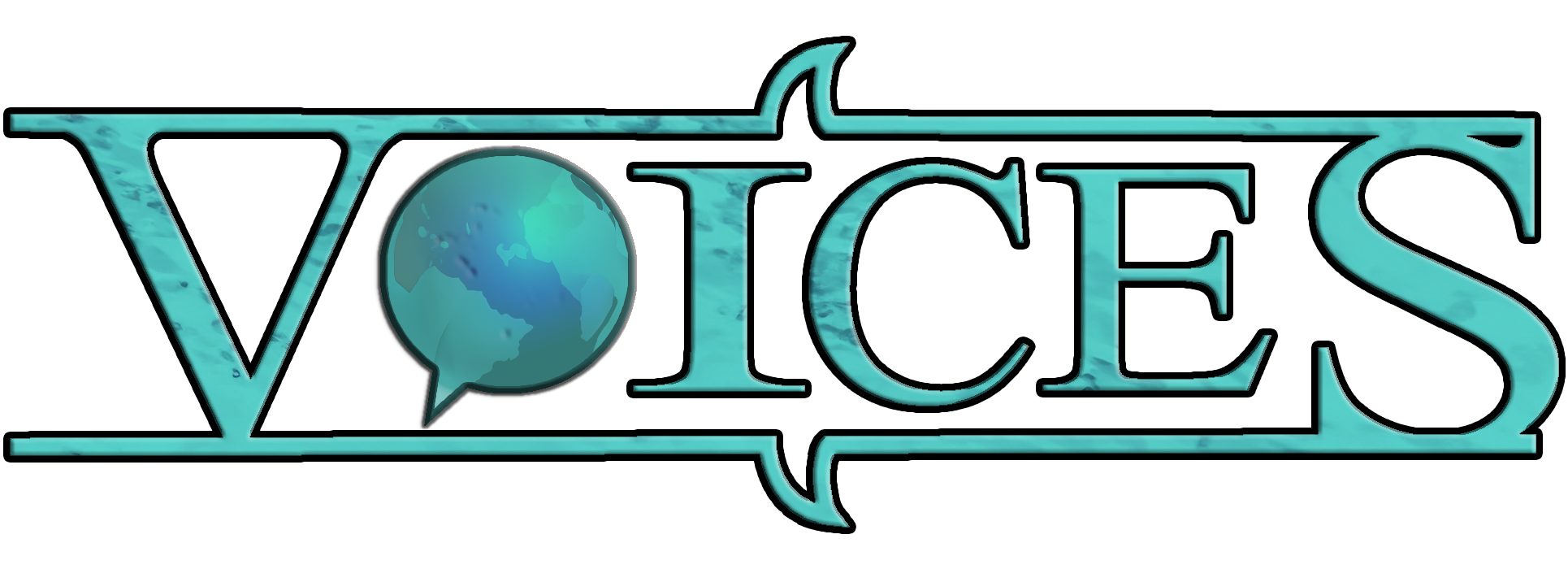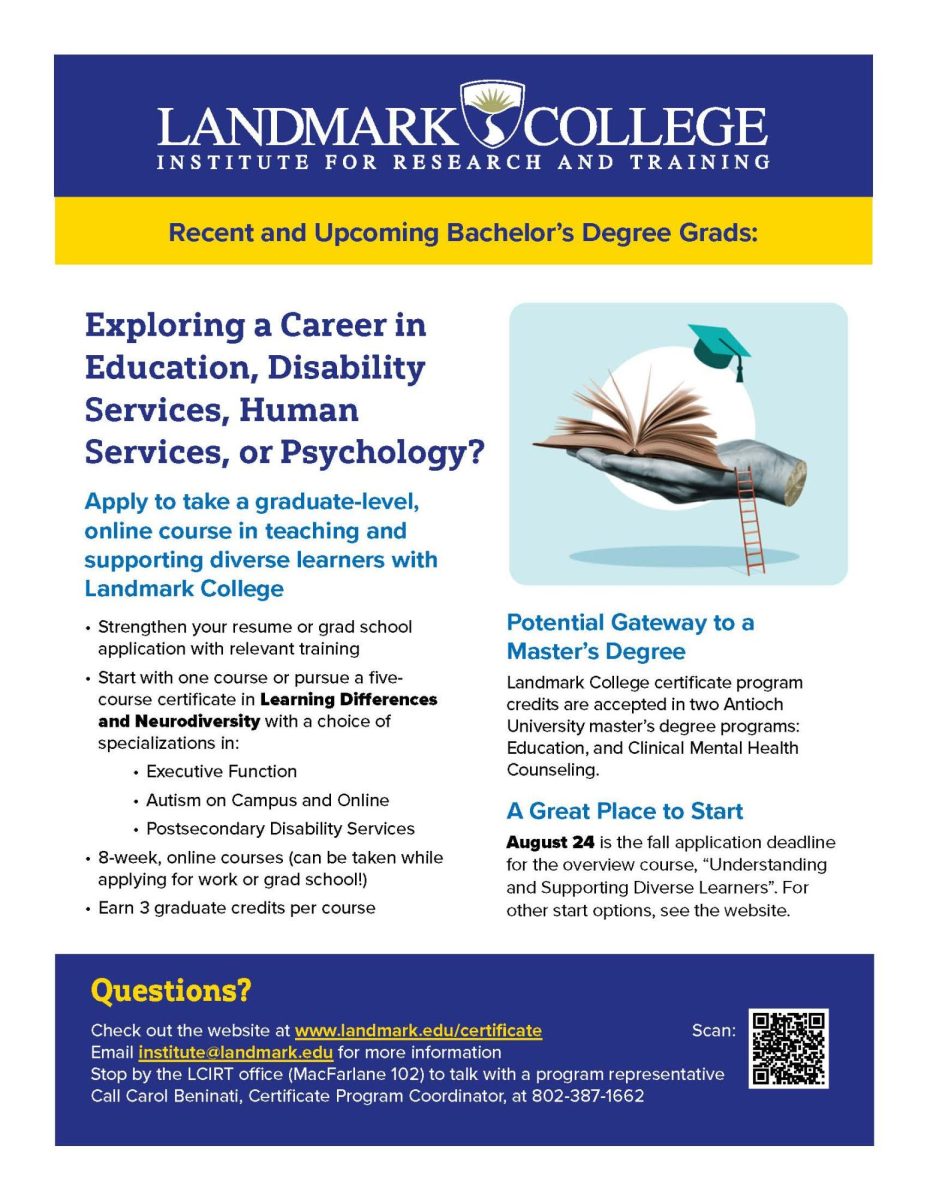
Landmark College, designed for students with a neurodiverse background, has evolved in the last thirty-nine years since its establishment. Originally Landmark College was designed for people on the neurodiversity spectrum who were diagnosed or who identified as dyslexic. According to the College’s website, Landmark College later expanded acceptance of other disabilities under the neurodiversity umbrella, such as Attention-Deficit Disorder and Autism, as more research became known about them. Today, Landmark College accepts individuals of all neurodiverse backgrounds including those who struggle with Executive Functioning Disorder and have different learning styles. Throughout this journey of continuous advancement, Landmark College has expanded its degree offerings and classes to enhance students’ experience and prepare them for success in the future. One of the most recently developed programs is a Disability Studies minor that has grown in popularity over the years. Katie Roquemore, a pioneer for the new minor at Landmark College, has a background in Neurodiversity Studies having received a degree from Syracuse University. Now she is an Assistant Professor of Education and Chair of the Core Education Department at Landmark College.
When asked about her involvement in the new minor, Roquemore described her desire to create the Disabilities Studies degree offering at Landmark College, and how it varies from other post-secondary options. “It includes more about cultural disability. Disability pride — it is thinking about how to support how we can help neurodivergent folks in developing an identity around that part of themselves. Rather than more kind of medical or psychology approaches that are more like deficit oriented or focus on… ‘What’s wrong with an individual,’ disability studies is much more about the strengths and unique characteristics,” said Roquemore.
When asked about her role in the minor’s creation, Roquemore explained how she collaborated with Professor Tim Beck on this program’s design. Roquemore thoroughly advocates for this minor because it is, “a critical field that thinks about disability and neurodivergence in a different way than other fields and disciplines.” While discussing this new minor with Dr. Roquemore, she allowed me to look at the minor’s description. This minor focuses on, “sociocultural, psychological, biological, and legal underpinnings of disability and neurodiversity. Topics related to identity, diagnosis, culture, mental health, and health would provide a common link between the courses included.”
When rising senior Dominic Limaldi found out about this minor, he began to take steps to declare it as soon as he could. When asked why he declared this degree plan Limaldi stated, “I chose the disability studies minor because I wanted to understand more about myself and my disabilities and learn tools and strategies to help neurodiverse individuals.” Like many Landmark College students, Dominic always aspires to learn more about himself. Students at Landmark College choose degree plans that both prepare them for success and ignite their passions. When asked about his future Dominic said, “When I graduate from Landmark with this minor, I see myself giving back to the neurodiverse community and helping individuals who are neurodiverse both socially and academically.” This minor opens many opportunities for students like Limaldi in both the public and private sectors.
Dr. Roquemore echoes this message and says, “If you’re thinking about a career in psychology, or if you’re interested in education,… it can add kind of different frameworks to a lot of different disciplines, because it is such an interdisciplinary field, in its own or on its own, and so I think it is a way that you can add a layer of, kind of a critical framework.” She invites students to contact her, or Professor Beck to inquire more about this new minor, which is now declarable this fall.




